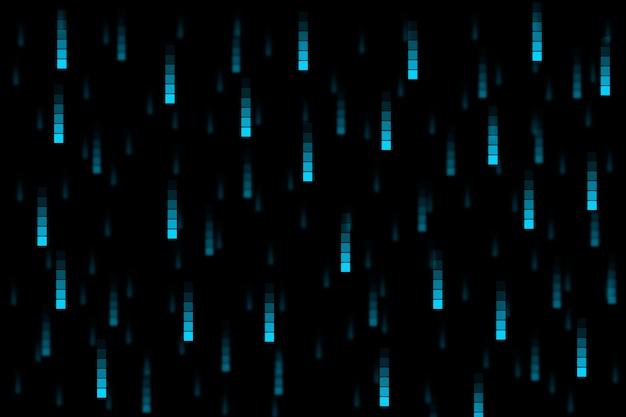Does the rain cause your AC unit to malfunction? As summer approaches, we rely on our air conditioning units to provide us with cool air and comfort during the hottest months of the year. But what happens when it rains? If you’ve experienced a sudden loss of cooling during or after a rainstorm, you’re not alone. Many people have found themselves in this situation and are curious to know why.
Can Rain Cause AC to Stop Working?
Can rain actually cause an AC unit to stop working? It’s a common question, and the answer is not as straightforward as you might think. While precipitation doesn’t usually cause any direct damage to the AC unit, there are other factors at play. One of these factors is humidity, which can be significantly higher during and after a rainstorm. Excess moisture can cause electrical components in your AC unit to malfunction or short circuit, leading to a sudden loss of cooling.
AC Not Blowing Cold Air After Rain
After a storm, it’s not uncommon to notice that your AC unit is not blowing cold air. This can be a frustrating and uncomfortable experience, especially if the humidity levels remain high. One possible explanation for this phenomenon is that the outdoor unit of your air conditioner may be clogged with debris or leaves. When this happens, the airflow is restricted, and the heat exchange process is less efficient.
Should I Turn My AC Off When It Rains?
Some homeowners believe that turning off their AC unit during a rainstorm is a good idea. In reality, this isn’t the case. The system is designed to withstand weather fluctuations, including rain and humidity. Turning off your air conditioning unit could cause more problems than it solves. Instead, focus on regular maintenance and ensure that the unit’s electrical components and outdoor unit are kept clear of debris.
Why Is My AC Unit Not Working After a Storm?
If your AC unit is not working after a rainstorm, there could be many reasons for this. For example, if your power supply is disrupted during a storm, it could lead to electrical damage to the unit. Alternatively, the outdoor unit could be damaged due to debris during strong winds. Regular maintenance and inspections can help detect and repair these issues before they become a more significant problem.
What to Do If AC Unit Stops Working After Rain?
If your AC unit stops working after a storm, there are a few things you can do. First, check your thermostat to ensure it’s set correctly and all wires are secured. Next, check the air filter to determine if it’s dirty and needs to be cleaned or replaced. Finally, schedule an inspection with an HVAC professional to diagnose and repair any issues with the unit. Regular maintenance can help prevent issues and ensure your AC unit is functioning optimally.
Why Does My AC Stop Working When It Rains
If you’ve ever experienced your AC stop working when it rains, you know how frustrating it can be. It’s during the hottest and most humid days that your AC unit can just decide to quit working, leaving you feeling hot and sticky.
Clogged Drain Line
One of the most common causes of an AC unit shutting down during rainfall is a clogged drain line. Located near the evaporator coil, the drain line is responsible for removing the excess condensation from the system. If this line is clogged, water can back up into the system, causing it to shut down.
Electrical Components
Another issue that can lead to an AC shutting down during rainfall is a problem with its electrical components. When water makes contact with electrical components, it can cause a short circuit, which will shut the system down.
Damaged Components
During rainfall, hail, and strong winds associated with storms can cause damage to the outdoor unit of your AC system. This damaged unit can lead to inefficient operation and eventual system breakdown.
Inadequate Maintenance
As with most household systems, regular maintenance of your AC unit is crucial to efficient operation. Poorly maintained systems can lead to issues like clogged filters, dirty coils, etc. These issues can be exacerbated by rainfall, causing the AC unit system to shut down.
Your AC unit stopping working during rainfall can be a big inconvenience. With the reasons above, it’s clear that there could be a combination of reasons for your AC to stop working. Regular maintenance, ensuring that the drain line is cleaned, and regular inspection of electrical components can boost your AC performance and help to mitigate any issues that arise during rainfall.
Can Rain Cause AC to Stop Working
If you’ve ever experienced your AC shutting down on a rainy day, you’re not alone. Rain can indeed cause your AC to stop working. Let’s explore the reasons why.
Clogged Outdoor Unit
During dry weather, the outdoor unit of your AC can accumulate dirt, dust, and debris over time. If it rains heavily, this debris can mix with water and form a muddy paste that clogs the AC’s condenser coils. As a result, the unit struggles to expel the heat, causing it to overheat and shut down.
Flooded Circuit Board
Your AC’s circuit board is responsible for controlling all the electrical functions of the unit. Heavy rain can cause water to pool around the circuit board, causing it to short circuit. When this happens, the AC will stop working until the circuit board dries out.
Damaged Wiring
Another common problem that can occur due to heavy rain is water damage to the AC’s wiring. If the wiring gets exposed to water, it can become damaged or even start to corrode over time. This damage can cause a short circuit, which could lead to the AC shutting down.
Low Refrigerant Levels
Rain can also affect the refrigerant levels of your AC. Typically, refrigerant levels should remain consistent throughout the year. However, if it rains heavily, the moisture can damage the refrigerant lines, causing them to leak. This leak will lead to a loss of refrigerant, which can cause your AC to stop cooling effectively.
In conclusion, rain can indeed cause your AC to stop working. However, by taking good care of your AC and ensuring that it’s protected from heavy rain, you can avoid these problems altogether. Ensure that you schedule regular maintenance and cleaning of your AC and have a professional inspect it if you notice any issues.
AC Not Blowing Cold Air After Rain
Rain can cause a lot of problems for your AC system, and one of the most common issues is it may stop blowing cold air. If your AC is not blowing cold air after rain, here’s why.
Clogged Air Filter
A clogged air filter is the most common reason why your AC system is not blowing cold air after rain. When it rains, the air filter can get clogged with dirt, leaves, and other debris. This can obstruct the airflow and prevent the AC from functioning properly. To fix this, you need to clean or replace the air filter.
Leaky Ductwork
Another reason why your AC system may not blow cold air after rain is leaky ductwork. When it rains, water can seep into your ductwork through any gaps or cracks. This can cause damage to the insulation, which can then lead to reduced airflow and poor indoor air quality. To fix this, it’s best to get your ductwork inspected and repaired by a professional.
Refrigerant Leak
Refrigerant is what’s responsible for cooling the air in your AC system. When it rains, the condenser unit can get damaged, causing refrigerant to leak out. This will result in your AC system not blowing cold air. To fix this, you need to hire a professional to inspect your AC unit for leaks and repair them.
Improper Installation
If your AC system is not blowing cold air after rain, it could be due to improper installation. If the system is installed incorrectly, it can cause the condenser unit to get damaged, which can lead to refrigerant leaks and other issues. To fix this, you need to hire a professional to reinstall your AC unit correctly.
In conclusion, if your AC system is not blowing cold air after rain, there could be several reasons why. It’s best to hire a professional to inspect your AC unit and identify the root cause of the problem. Proper maintenance, cleaning, and repairs can prevent this problem from happening in the future.
Should I Turn My AC Off When it Rains
If you’re like most people, you might be wondering whether or not you should turn off your air conditioning (AC) when it’s raining outside. There is no definitive answer to this question since many factors determine whether or not turning off your AC when it’s raining is necessary. However, there are some things you should know that can help you make an informed decision.
Why Do People Turn off Their AC When it Rains
The main reason why some people prefer to turn off their AC when it’s raining outside is to prevent damage to the AC unit. Heavy rainfall can cause water to accumulate at the base of the AC unit, which can lead to electrical damage or short circuits. Turning off your AC helps to avoid the risk of electrical problems.
Is Turning off Your AC When it Rains Necessary
Whether or not you should turn off your AC when it’s raining outside depends on several factors. If your AC unit is located in a dry area of your home, you don’t need to turn it off when it’s raining. If your AC unit is located outside or in an area of your home where water is likely to accumulate, it’s best to turn it off until the rain subsides.
What Are the Consequences of Leaving Your AC on When it Rains
Leaving your AC on when it’s raining outside may not cause any immediate problems, especially if your AC unit is in a dry area of your home. However, if water accumulates around the base of your AC unit, it can cause electrical problems or damage to the AC unit. Likewise, heavy rainfall can cause power outages, which can lead to additional problems if your AC is on when the power comes back on.
To summarize, turning off your AC when it’s raining outside is generally a good idea, especially if your AC unit is located outside or in an area of your home where water is likely to accumulate. However, if your AC unit is in a dry area of your home, you don’t need to turn it off when it’s raining. Ultimately, it’s up to you to decide whether or not turning off your AC when it’s raining is necessary based on the location of your AC unit and the severity of the weather.
Why Is My AC Unit Not Working After a Storm
So, you just made it through a storm, but now you are having issues with your AC unit. You might notice that it’s not working as it did before, or even worse, it has stopped altogether. Here are some reasons why your AC unit is not working after a storm.
Power Interruption
Storms can cause power outages, which can affect your AC unit. Sometimes, the power surge in the aftermath of the storm can cause your AC to malfunction. If the AC unit is not getting any power, you should check the circuit breaker or the electrical panel to make sure there is no issue. If the breaker is tripped, reset it, and your AC unit should come back on.
Water Damage
During a heavy storm, rainwater can infiltrate your AC system, causing potential damages. Water can cause electrical damages to your unit, which can lead to malfunction. It is essential to turn off the power to your AC unit and call a professional technician to inspect and repair it.
Debris
Another reason why your AC unit might not be working after a storm is debris left by the wind or the rainstorm. Items pushed by the wind can damage your AC unit’s exterior unit, causing it to malfunction. Leaves or twigs can clog the exterior unit’s air intake, causing the unit to work harder to cool your home. Check the surroundings of your AC unit and remove any debris to fix the problem.
Refrigerant Leaks
AC units rely on refrigerants to cool your home. During a storm, the metal coils that hold refrigerant can sustain damage from hailstones or other flying debris. This can cause refrigerant leaks, and the AC unit will stop working. If you suspect a refrigerant leak, you should call a professional technician to repair it.
In conclusion, these are some reasons why your AC unit might stop working after a storm. Check for power outages, water damage, debris, and refrigerant leaks, and contact a professional AC technician to repair it if necessary. By taking proper precautions, you can ensure your AC unit is up and running even after a storm.
What to Do If Your AC Unit Stops Working After Rain
If your AC unit stops working after rain, there are a few things you can do to troubleshoot the problem before calling a professional.
Check for Electrical Issues
The first thing you should do is check for electrical issues. Rainwater can cause electrical faults in your AC unit. Check your circuit breaker to see if it has tripped. If it has, reset it and check to see if your AC unit starts working. If that doesn’t work, it might be a problem with the fuse. Check the fuse box and replace the fuse if necessary.
Check for Blocked Drainage
Rainwater can also cause drainage problems in your AC unit. Check the drain line for any blockages. This can be done by removing the drain line, if possible, and checking for any debris or dirt clogging it. You can also use a wet/dry vacuum to suck out any debris. Cleaning the drain line can fix the problem and allow your AC unit to start working again.
Check for Damaged AC Components
If the above solutions don’t work, it might be a problem with a damaged AC component. For example, the AC fan could be damaged due to rainwater. Check for any damage to the exterior components of your AC unit, such as the fan or compressor. If there is any damage, you will need to call a professional to repair or replace the damaged parts.
Call a Professional
If none of the above solutions work, it’s best to call a professional. A professional HVAC technician will be able to diagnose and fix the problem quickly and efficiently. They will have the necessary tools and expertise to safely repair your AC unit.
In conclusion, there are various reasons why your AC unit might stop working after rain. It could be due to electrical issues, blocked drainage, or damaged AC components. Before calling a professional, try to troubleshoot the problem using the above mentioned tips. If you can’t fix the problem, call a professional to have them diagnose and fix the issue.



